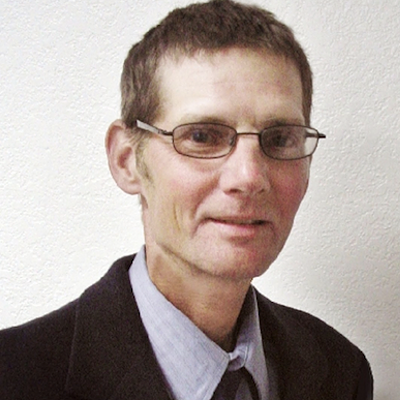"Family literacy is gone and adult education is only funded 75 percent," said George Cunningham, the governor's deputy chief of staff for budget and finance. "They need to fully restore both programs."
Family literacy is a statewide program that teaches reading and writing skills to children and their parents. The program costs $1 million and serves about 500 families.
Greg Hart, the dean of Pima Community College's adult education program, said the proposed cut would hurt many low-income families who can't afford to pay for a private education for themselves or extra help for their children.
"Family literacy is an efficient program and an excellent pathway for people in adult education," he said.
Adult education in Arizona serves about 46,000 people each year who are trying to learn English, improve their reading or writing skills or get their GED. This year, the program cost the state about $5.5 million, with another $6 million to $9 million coming from the federal government.
There are 1,000 people on the adult education waiting list in Pima County alone.
According to Hart, the budget proposal will severely hurt adult education statewide and will force Pima Community College to limit the amount of people they can accept into the program. He predicts the county waiting list will grow to between 2,500 and 3,000 people by the end of next year.
"If it goes through, we will lose at least a couple of hundred thousand dollars," he said. "We will cut into the core of our program."
Republican Rep. Russell Pearce said the slow economy is forcing lawmakers to cut spending, including the cuts in adult education.
"These are tough financial times," Pearce said. "You just can't be everything for everybody."
Hart said he understands that the state is in a financial crisis, but he doesn't think adult education should have to shoulder more of a burden than other institutions.
Unlike an earlier GOP budget plan, the new proposal allows adult education to exist in Arizona, but Hart complains that it's still unfair because adult education--despite its apparent proficiency--has to bear harsher cuts than many other educational organizations.
"I believe that as the fate of adult education unfolds, so does the fate of this community," Hart said.
Last year, more than 10,000 degrees, approximately 25 percent of all high-school diplomas issued in Arizona during the 2002 fiscal year, came through the state's GED testing program.
If the 13,255 students in adult education between the ages of 16 and 21 would have attended a public high school instead of getting a GED, it would have cost the state approximately $66 million, Hart said.
He said he believes the state saved about $5.5 million in public assistance as a result of people completing adult education programs in 2001.
"Why would you slash a budget that is so essential to so many people, especially when you ask other areas to cut only a fractional amount?" Hart said. "If these cuts go through, where will these people go?"
House Majority Whip Randy Graf, the Republican who represents Tucson's eastside and Green Valley, told The Weekly earlier this year that he's trying to root out people who shouldn't be getting an education in the program.
"I understand that a lot of adult education dollars are going for GED programs and literacy," Graf said. "Who's taking advantage of those programs? What percentage perhaps might be illegal immigrants, for example?
Cindy Meier, the associate dean of Pima Community College's adult education program, said most of the students enrolled in the adult education program were born in the United States or migrated here legally.
"I'm not sure where (Graf) gets his information about who our students are," Meier said. "To my knowledge, Graf has never visited an adult education program--certainly, never ours."
Kris Mayes, the communication director for Democratic Gov. Janet Napolitano, said the governor feels the GOP proposal is better than ones in the past that called for adult education's complete elimination, but she is still not happy with a 25 percent cut.
Mayes said the governor is determined to not cut education and has proposed her own budget that keeps adult education and family literacy intact.
"It makes no sense to cut education when we know that adult education serves as an economic driver for the future of our state," she said.
Republican State Superintendent of Public Instruction Tom Horne said adult education and family literacy are important because they help the individuals involved, but the programs also lead to parents being better equipped to help their children with homework.
According to Horne, the adult education and family literacy programs are significantly cheaper ways to provide an education than traditional schooling.
He said there are other government programs that are more apt for such significant cuts.
Darcy Olsen, the president of Goldwater Institute, a Phoenix-based think tank, said enrolled students could pay a fee and volunteer organizations could take over teaching adult education if it lost funding or needed to be eliminated.
"The program has worthy goals, but it should be handled by the private sector," she said. "If the need grows, the volunteer base will grow. ... With a combination of people being able to pay and volunteer help from our community and college students we can make it work."
Betty Stauffer, the executive director of the Literacy Volunteers of Tucson, called the idea "ridiculous." Volunteer organizations couldn't effectively teach all the students nor could they help the people who are on waiting lists for adult education programs across the state, according to Stauffer.
"It's like they're going out of their way to keep Arizona education at the bottom of every category ranking," Stauffer said.
Abraham Robles, a 27-year-old resort cook who is taking GED classes through Pima College, believes that students in adult education have been unfairly targeted.
"There are a lot of minorities like me trying to get a GED so they can provide a better life for their families," he said. "The politicians say they want to help the minority population, but why do they try to close programs like these?"









